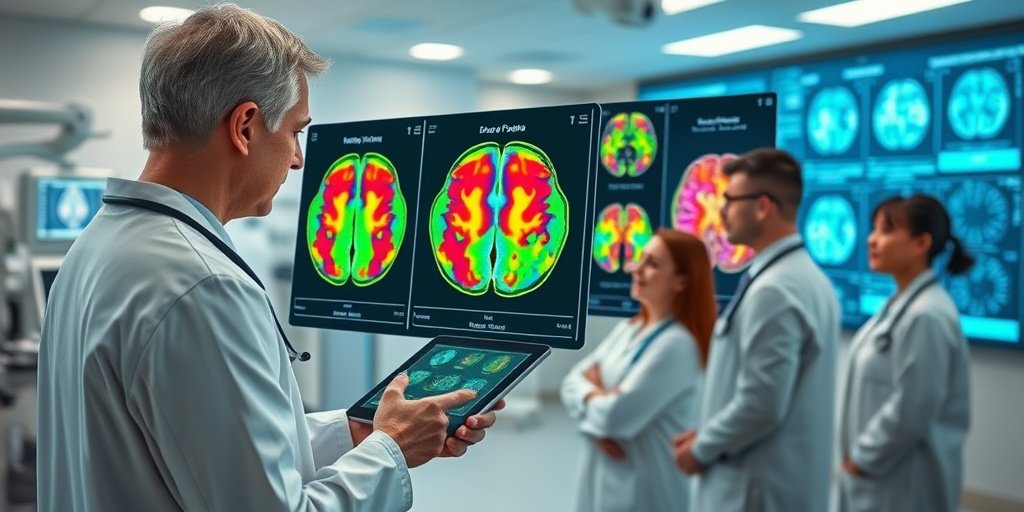Overview
Mayo Clinic researchers have introduced a new artificial intelligence (AI) tool named StateViewer, designed to assist clinicians in identifying brain activity patterns associated with nine types of dementia, including Alzheimer’s disease. This tool utilizes a single, widely available scan, marking a significant advancement in early and accurate diagnosis.
Key Findings
- The StateViewer tool achieved an identification accuracy of 88% in diagnosing dementia types.
- It allows clinicians to interpret brain scans nearly twice as fast and with up to three times greater accuracy compared to traditional methods.
- The AI was trained and validated on over 3,600 scans, including images from both dementia patients and cognitively healthy individuals.
Importance of Early Diagnosis
This innovation addresses a critical challenge in dementia care: the need for early and precise identification of the disease, especially when multiple conditions may be present. Timely diagnosis is essential for matching patients with the most effective treatments.
Global Impact
Dementia currently affects more than 55 million people worldwide, with nearly 10 million new cases diagnosed each year. Alzheimer’s disease is the most prevalent form and ranks as the fifth-leading cause of death globally. Traditional diagnosis methods often involve a combination of cognitive tests, imaging, blood tests, and specialist referrals, making it challenging to differentiate between conditions like Alzheimer’s, Lewy body dementia, and frontotemporal dementia.
Development Team
The StateViewer tool was developed under the guidance of David Jones, M.D., a neurologist at Mayo Clinic, and Leland Barnard, Ph.D., a data scientist leading the AI engineering efforts.
Technical Details
The tool analyzes fluorodeoxyglucose positron emission tomography (FDG-PET) scans, which illustrate how the brain utilizes glucose for energy. It compares these scans against a comprehensive database of confirmed dementia cases to identify specific patterns associated with various types of dementia.
Future Plans
Mayo Clinic researchers aim to expand the use of StateViewer and continue evaluating its performance across different clinical settings, potentially enhancing access to specialist-level insights in clinics lacking neurology expertise.
